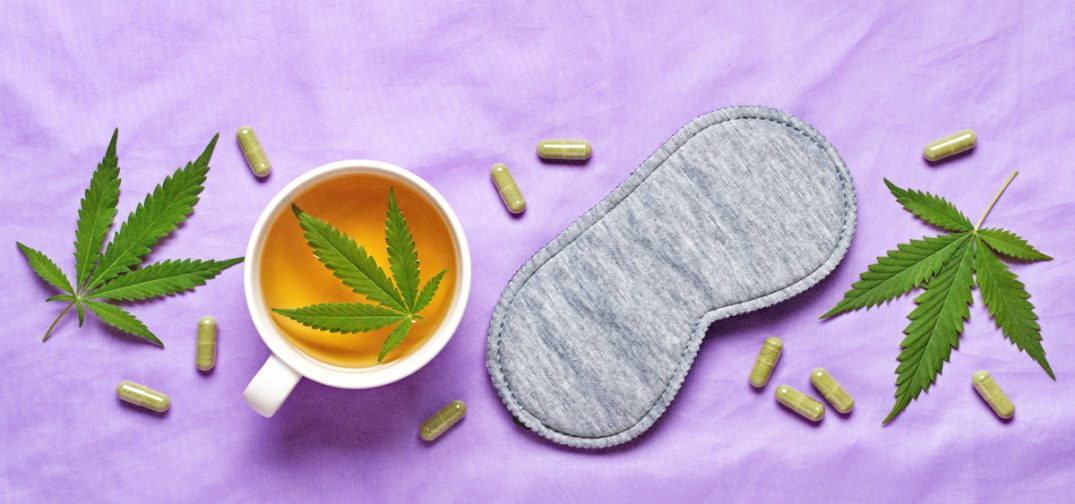A new study published this past December in Regional Anesthesia and Pain Medicine found that chronic cannabis users reported more sleep disturbances, including trouble falling and staying asleep. But cannabis has been touted as a sleep aid for years, and with easier access to cannabis due to legalization in many US states, more are turning to cannabis for sleep support.
The COVID-19 pandemic, too, has ravaged normal sleep schedules — a new study published in the journal Sleep found that insomnia rates went up 26.7% from 2018 to 2020 as the first wave of the pandemic hit, causing intense psychological stress for millions.
Researchers at the University of Toronto, Canada analyzed data gathered on the cannabis use habits of 21,729 Americans in a study said to represent 146 million Americans. The data was collected over 13 years by the National Health and Nutrition Examination Survey, which was designed by the CDC. Calvin Diep, an anesthesiology resident at the University of Toronto and the first author on the paper, realized that others hadn’t taken advantage of the cannabis data in the survey and saw it as an opportunity to find something new. “Curiosity really set all this off,” Diep said in an interview.
They found that heavy users of cannabis (20 or more times within 30 days) struggled both with getting enough sleep and with sleeping too much. Moderate cannabis users (fewer than 20 times within 30 days) were more likely to sleep more than nine hours. Notably, the study found that recent users of cannabis reported seeing a physician regarding sleep issues more than non-users of cannabis. Sleep disturbances measured in the study include trouble falling asleep, staying asleep, and abnormal hours of sleep (this was characterized as fewer than six hours and more than nine hours of sleep). Overall, heavy users were at the greatest impact for sleep disturbances.
According to Diep, the study has opened a conversation for future research into cannabis and sleep:
“[Cannabis] is a drug at the end of the day; it’s a chemical agent. Just like all other drugs, we need to do research to figure out where exactly this might or might not fit into the realm of our therapeutic practices.” — Diep, in an interview
Their study explored the relationship between cannabis and sleep at a population level, not on an individual level. Next steps for other scientists might include a randomized control trial or a clinical trial to better control fine details like cannabis strain, time of use, and the questions asked about sleep habits.
But what about research that shows cannabis can help people sleep? Some research has found that using cannabis can decrease the amount of time it takes to fall asleep, called sleep latency. But this effect can disappear when use becomes chronic. Diep and his colleagues found that frequency of cannabis use and sleep duration were related — that is, how much you use cannabis can impact sleep quality.
How you consume cannabis matters, too. A 2021 study published in the journal Addictive Behaviors explored how cannabis use affects sleep when people use edibles instead of smoking. Just as with Diep and his colleagues’ study, more frequent cannabis use was tied to worse sleep quality. In the former study, this effect was more intense for those using edibles. This may be because edibles take longer to kick in than other methods of consumption, and their effects can last longer, thus potentially messing with our sleep for longer into the night.
The effects of CBD
Scientists in the study also asked participants to report average CBD (cannabidiol) use and found that those who reported a higher average CBD intake tended to have better sleep quality. Research has shown CBD has a sedating effect and can improve some aspects of sleep. Interestingly, older participants in the study saw more benefit from CBD than younger participants. The study authors think this might be related to how our bodies change as we age — metabolism slows as we get older, allowing more CBD to remain in the body.
Melatonin, in addition to CBD, has been shown to help the restless fall asleep quicker. Research also suggests mindfulness may improve sleep quality. An article published in the Washington Post in 2021 points to many methods for falling asleep like reading before bed, progressive muscle relaxation, and even cognitive behavioral therapy for insomnia. So while CBD or infrequent cannabis use may help us sleep, it is not the only method.
It is important to note that both studies relied on survey material, and a multitude of factors can hinder a subject’s reported cannabis use in a survey. “These are just small pieces of information that people and consumers can use to guide their decision-making and to create an open conversation with their healthcare provider,” Diep says regarding their findings. Their study has provided insight for researchers to keep asking questions and uncover more about how cannabis use and sleep are related. “Good research opens more questions,” says Diep.
#
Additional Sources
“Using Recreational Cannabis to Treat Insomnia.” 2019
“Use of Cannabis to Relieve Pain and Promote Sleep by Customers at an Adult Use Dispensary.” 2019
“Cannabis, Cannabinoids, and Sleep: A Review of the Literature.” 2017
“Recent cannabis use and nightly sleep duration in adults…” 2021
Get daily cannabis industry news and insights. Subscribe
End
